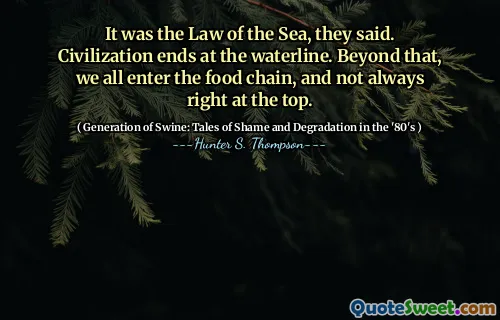But there are not two laws, that was the next thing I thought I understood, not two laws, one for the healthy, another for the sick, but one only to which all must bow, rich and poor, young and old, happy and sad. He was eloquent. I pointed out that I was not sad. That was a mistake. Your papers, he said, I knew it a moment later. Not at all, I said, not at all. Your papers! he cried. Ah my papers.
The passage highlights a profound realization about the nature of law and its universality. It emphasizes that there is not a separate set of laws for different groups of people, such as the sick or the healthy, but rather a single law that everyone must adhere to, regardless of their circumstances. This notion suggests that societal rules are meant to be fair and apply equally to all individuals, regardless of their status or emotional state.
The dialogue demonstrates a moment of misunderstanding and tension between the speaker and another character. The protagonist attempts to assert their emotional state, claiming not to be sad, but this is quickly rebuffed with a focus on their "papers," indicating a bureaucracy or a system of identification that may define their existence. This interaction reflects themes of identity and societal constraints within Beckett's work.

